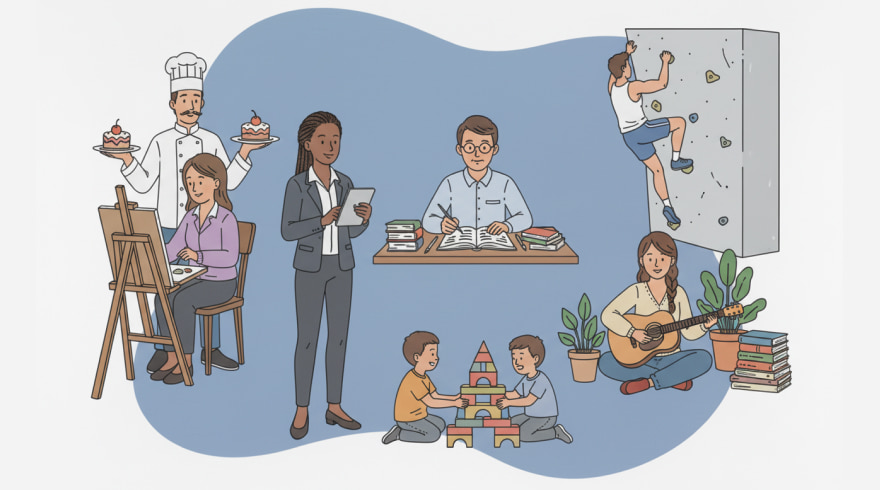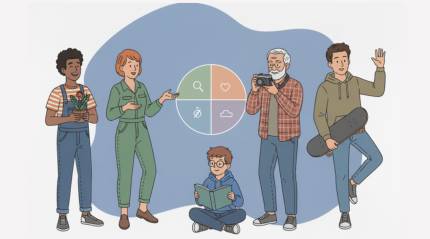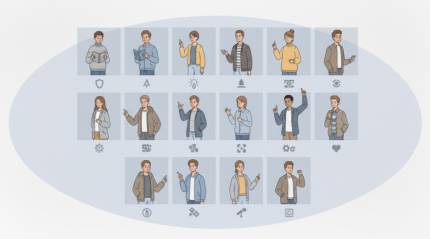The Complete Guide to the 16 Personalities Test: Insights, Uses, and Smart Next Steps
- 14 November 2025

16 Personalities Test Online: Find Your MBTI Type
Get StartedUnderstanding the Typology Behind Modern Personality Quizzes
Personality typology offers a practical lens for examining how people gather information, make decisions, and approach work and relationships. Rather than claiming to predict behavior with infallible accuracy, reputable frameworks aim to provide language for preferences and patterns. When used thoughtfully, these profiles become a starting point for reflection and conversation, not a rigid label. That mindset unlocks value for career planning, team building, and self-development because it invites nuance and encourages growth.
Many enthusiasts begin with online assessments to gain a quick snapshot before exploring deeper resources or coaching. Fans often turn to the 16 personalities quiz for an approachable entry point that translates complex theory into readable narratives and practical tips. After reviewing a brief report, users typically compare insights with lived experiences and adjust takeaways to fit real contexts.
Short questionnaires can highlight preferences across well-known dichotomies while emphasizing that no result is better than another. Curious learners frequently try the 16 personality quiz to see how their tendencies map onto common patterns around communication, collaboration, and conflict style. From there, a thoughtful reader can triangulate insights with feedback from peers and outcomes from real projects.
How Results Are Generated: the Four Dichotomies and Patterns They Reveal
Most widely used instruments group preferences into four paired dimensions, producing a compact code that summarizes how someone tends to orient their energy, attend to information, evaluate choices, and organize their environment. These scales are not absolutes but leanings along spectrums, which means context can nudge behaviors in different directions. High-quality interpretations also discuss development tips, blind spots, and strategies for working with complementary styles to reduce friction and improve outcomes.
| Dichotomy | Poles | What It Describes | Illustrative Prompt |
|---|---|---|---|
| Energy | Extraversion vs. Introversion | Where attention and motivation are refreshed | You feel recharged by group activity or quiet time? |
| Information | Sensing vs. Intuition | Preference for concrete facts or abstract patterns | You trust hands-on data or big-picture possibilities? |
| Decision | Thinking vs. Feeling | Leaning toward logical criteria or values impact | You prioritize objective metrics or human harmony? |
| Lifestyle | Judging vs. Perceiving | Approach to structure, planning, and spontaneity | You prefer firm plans or flexible options? |
Beyond letters, robust interpretations tie patterns to strengths, blind spots, and growth tactics across communication, leadership, and collaboration. Many readers explore the 16 personality types quiz to compare how distinct combinations can emphasize strategic vision, operational detail, relational empathy, or analytic rigor. The best write-ups include situational advice that adapts guidance to remote work, cross-functional projects, and multicultural teams.
Foundational theory traces back to celebrated psychological models, translated for practical use through modern interfaces and engaging narratives. Some platforms frame their assessments as the 16 personalities quiz myers briggs to signal lineage while still delivering plain-language reports and actionable suggestions. That blend of heritage and accessibility helps newcomers appreciate both the science and the everyday utility of the tool.
Key Benefits: From Self-Awareness to Team Performance
Clarity about preferences can accelerate learning, reduce friction, and make collaboration more humane. When people understand their default patterns, they can choose when to lean into strengths and when to counterbalance them. Teams gain a shared vocabulary to discuss differences without judgment, which improves psychological safety and speeds up conflict resolution. Leaders can tailor communication, project scoping, and feedback rituals to match the needs of diverse contributors and stakeholders.
Career development also benefits from structured reflection that highlights energy drains and energizers. Professionals often explore the 16 types personality quiz to map typical stress triggers, preferred problem-solving modes, and environmental fit. With that baseline, it becomes easier to select projects, negotiate responsibilities, and design workflows that minimize burnout and maximize flow.
Organizations can weave personality insights into onboarding, coaching, and change management while avoiding stereotyping. People who prefer a quick primer sometimes reference the MBTI quiz 16 personalities as a doorway to richer programs that blend assessments with workshops and mentoring. When coupled with performance data and candid conversations, the framework becomes a tool for continuous improvement rather than a static label.
- Enhances self-knowledge and emotional literacy across roles.
- Strengthens collaboration by normalizing diverse work styles.
- Guides career moves, skill stacking, and leadership development.
- Improves meeting design, feedback cadence, and decision rituals.
- Supports conflict de-escalation with shared, nonjudgmental language.
Preparation, Accuracy, and Making Sense of Your Report
Short assessments work best when you answer based on typical behavior rather than aspirational ideals. Set aside distractions, respond quickly, and think about how you act across multiple contexts instead of one unusual week. After receiving a code and narrative, treat the output as hypotheses to test in real projects and relationships. That evidence-first approach keeps insights grounded and actionable.
Practical checklists can keep the experience calm and productive, from timing the session to journaling about surprises and confirmations. Many readers schedule a session and then decide when to 16 personalities take quiz so the process feels reflective rather than rushed. If possible, pair your notes with feedback from colleagues to spot patterns and exceptions that deepen understanding.
Reports often recommend next actions like targeted reading, skill exercises, and small behavior experiments to validate insights. Some platforms include an onboarding flow where you can click a button to 16 personalities start quiz and immediately save progress for later review. Whether you study alone or with a coach, translate every takeaway into one concrete habit you can practice over the next week.
Free Vs. Paid Paths: What You Get and How to Choose
Cost should not be a barrier to entry, and many reputable introductions provide solid value without a paywall. Explorers who want a quick orientation often try a platform that offers a 16 personality quiz free to sample the model and see if the language resonates. While brief, these versions typically include clarity on preferences, communication tips, and suggestions for follow-up learning.
Deeper options may unlock longer reports, benchmark comparisons, and guided exercises that integrate results with real goals and timelines. Some sites also extend access through a 16 personalities quiz free experience that pairs succinct summaries with visual dashboards and downloadable guides. If you later upgrade, you can usually carry forward answers and add richer analytics rather than starting from scratch.
- Free tools: quick orientation, core definitions, immediate takeaways.
- Paid suites: advanced charts, role-specific coaching, team analytics.
- Best practice: start small, validate value, then scale as needs grow.
Ethical Use, Limits, and Best Practices for Teams
Any typology has limits, so keep labels soft and focus on behaviors over identities. Context matters, development is continuous, and people flex preferences when situations demand. Use results to expand empathy and tailor support rather than to gatekeep opportunities or pigeonhole colleagues. Combine personality insights with skills matrices, performance outcomes, and values-based norms to create a balanced picture.
Responsible facilitators emphasize consent, confidentiality, and the voluntary nature of sharing profiles. Organizations that want brand-recognized language sometimes reference the myers briggs 16 personalities quiz while instituting clear guardrails that prevent misuse. The healthiest cultures treat any assessment as a conversation starter that promotes curiosity, inclusion, and mutual respect.
FAQ: Common Questions About This Popular Assessment
How accurate are short online personality assessments?
They can be surprisingly insightful when you answer candidly and reflect on patterns over time. Validation improves when you pair results with peer feedback and specific examples from work or school. Many newcomers test the waters with a concise 16 personalities personality quiz and then deepen their understanding through books, coaching, or workshops. The strongest insights come from comparing tendencies across multiple projects and contexts.
What should I do if two types seem to fit me equally well?
Start by identifying the smallest set of behaviors that truly differ between the options. Next, review recent situations to see which description matches your automatic reactions under pressure. It often helps to notice energy drains, planning style, and decision criteria because those patterns cluster consistently. Over time, you can refine your view by journaling and revisiting the material after major life changes.
Can my personality type change over the years?
Core preferences tend to be stable, but behavior often shifts with age, culture, and job demands. Many people show broader range as they build skills outside their default patterns. Development can make you more situationally agile without erasing your underlying leanings. Think of growth as expanding your toolkit rather than replacing it entirely.
Is this useful for career planning and job interviews?
Yes, when you focus on strengths, blind spots, and specific examples that demonstrate results. Translate high-level tendencies into concrete habits like how you prioritize, communicate, and deliver under deadlines. Recruiters appreciate clarity when it ties to measurable outcomes and collaboration wins. Keep statements humble, specific, and anchored in evidence.
How should teams integrate personality insights without stereotyping?
Use shared language to discuss needs, not to box people in or limit responsibilities. Create team agreements about meeting formats, feedback norms, and conflict resolution that respect diverse preferences. Rotate roles so everyone practices both natural strengths and stretch behaviors. Most importantly, evaluate performance on goals and impact, not on a static label.



